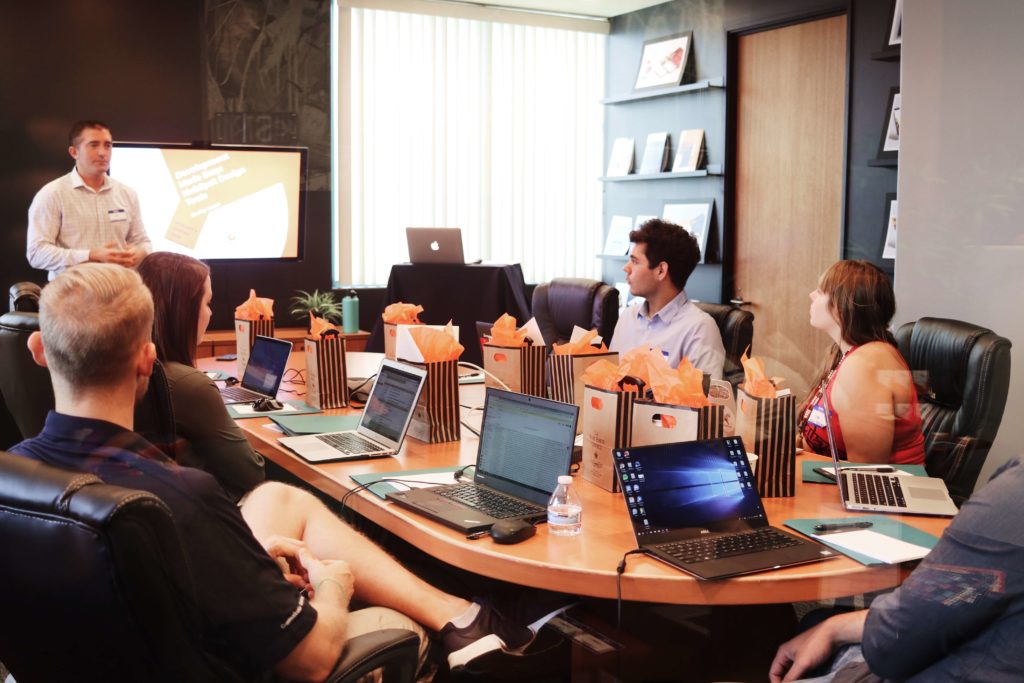Lisa Feldman Barrett’s talk on emotions is well worth your time (even more so if you use Ted’s acceleration options at the bottom of the video – I listened at 1.5 times the speed very comfortably).
Here are some of my highlights:
- emotions are not built-in, we build them
- we have a quick and efficient system for predicting future experiences based on past experiences (we don’t react based on the past, we predict based on the past)
- any emotions we perceive in others come out of our head, we’re not “reading” them on their faces**. This is also true for our own emotions: we’re predicting them based on our past experience
- we ARE having sensations (calm, agitated, etc – Submodalities in NLP terms), and we interpret those sensations as feelings and then as emotions – e.g. a churning stomach has different meanings when you’re walking past a bakery (Yum, I’m hungry) than it does when you’re awaiting test results (oh no, i’m nervous / anxious))
- While emotions seem to happen to us, they are in fact “made” by us – and we can change the ingredients and teach our brains to predict differently, becoming the architect of our own experience
- what if those nerves before a test or a talk are us preparing to go into battle?
- when your mind is racing, it’s prediction
- Always worth checking if intense distress could be a physical distress
- we have way more control over emotions than we imagine, and this is also a responsibility
- The actions and experiences you make today are important because you’re teaching your brain to make predictions tomorrow
** This made me think of some Dan Ariely research looking at how guilt is assigned / predicted in police interviews. Where juries are shown video with the interviewee only in frame they think people are “more” guilty / less reliable than when the interviewer and the interviewee are in the same frame. I think it’s in the Honest Truth about Dishonesty.
I wrote the first half of this post in 2018 when I saw the TED talk first.
A friend brought Lisa Feldman-Barrett’s work to my attention again recently in 2023. This is it: a podcast with Huberman. I don’t enjoy listening to his voice, but his guests are great, and they are long form podcasts. Also, as a medical professional he asks different questions. Some of my notes from this mirror the TED talk notes I took (yeah, i vaguely remembered it, but clearly I didn’t know it all, because I wrote them down again! Here they are:
- Brain as category generator
- Emotions not universal (facial expressions do different, not like Ekman said)
- Context matters
- We can’t know your emotional state from your face
- Eye contact with each other to distinguish signal from noise – e.g in. Battle
- So many different angers and some languages have words for them specifically: e.g. Anger about someone’s face needing a punch, Anger about a bad haircut. Many multi modal experiences all put together as anger
- Brain creating possible futures based on past/ current experience
- Authoritarian thinking is avoiding complexity meaning simple answers
- Brain is guessing at every synapse – It’s a lossy format
- There is a Turkish word for loss from people blocking your goals (anger and sadness)
- Label is a set of features useful for generalising, bin size can change, you can add new bins
If you’re in a hurry, the last 20 minutes have some practical ideas.
And of course Adam Grant’s podcast with Lisa Feldman Barrett is packed full of practical.
your brain is trapped in a dark silent box called your skull, and it’s receiving sensory signals from the world… So something’s happened and your brain has to guess what caused that change. Because otherwise, you won’t know what to do next to keep you, to keep yourself alive and, and well. And when you’re very granular, your brain can guess really, really, really precisely and well… and when you can make a very precise guess, meaning you’re, you’re very granular then you’re, you’re functioning in a very metabolically efficient way, and that’s really the arbiter of health and illness… [during the Pandemic] there’s just too much uncertainty that they’re having to deal with and it’s… bankrupting their body budget.
Lisa feldman barrett
sometimes you feel unpleasant, not because something is wrong, but because something is hard
lisa feldman barrett
only 30% of all brain imaging studies, for example, show an increase in amygdala activity during fear, which is more than chance, but it’s not high enough to be the center for fear… The amygdala is like a sentinel. It’s telling the rest of the brain that something important is happening where the brain has to marshal its energetic resources to learn something more or to learn something new, and it’s involved in regulating that as well as physical movement. Those circuits are important in moments of threat. But they aren’t threat detection circuits per se. They have a much more basic function that’s like a sentinel to tell the brain this is something that’s important to learn… that story, that the amygdala is the fear center or the threat center, and it has to be downregulated by prefrontal cortex. It’s a version of that myth that we have a ancient animalistic beast part of our brain, and then we’ve got this more rational side, and you know, one has to clamp down on the other in order for us to behave, you know, rationally and appropriately. It’s just a myth. It’s a morality tale. It’s a tale that that, you know, we’ve been telling ourselves since Plato. If you look at the overarching amount of evidence, it does not support that view
Lisa feldman barrett
recognizing emotions is actually a skill for regulating them. The more granular and nuanced you get about what you’re feeling, the more agency you gain to shape your experience. And when you’re grappling with an unwanted emotion, it’s worth remembering: this is just an electrical signal in your brain.
Adam Grant, reflecting on the podcast
So I guess the upshot of the idea, at least as far as anxiety is concerned, is that we don’t need to know everything, we just need to do the Next Right Thing. Beautifully Disneyfied by the fabulous Kristen Bell as Ana in Frozen 2.





